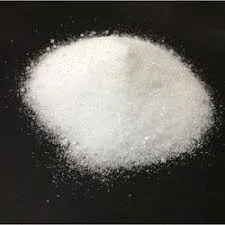The Role of Coating Additives in Modern Coating Formulations
Coatings play a crucial role in various industries, providing surface protection, aesthetic enhancement, and functional properties to myriad substrates. To enhance the performance of coatings, formulators have turned to coating additives, which are essential components that improve the application, stability, and overall quality of the final product. This article delves into the significance of coating additives, their types, and their applications in modern coatings.
What Are Coating Additives?
Coating additives are specialized substances that are incorporated into coating formulations to impart specific properties or enhance existing characteristics. Unlike the primary components, such as pigments, binders, and solvents, additives typically constitute a small percentage of the formulation but have a significant impact on performance. They can be tailored to meet the unique requirements of different applications, making them invaluable in the coatings industry.
Types of Coating Additives
Coating additives can be categorized based on their functions
. Here are some of the most common types1. Dispersing Agents These additives improve the distribution of pigments and fillers in the coating. They help achieve a uniform texture and enhance color strength while preventing settling and agglomeration of particles.
2. Rheology Modifiers Rheology modifiers impact the flow and viscosity of the coating, ensuring it can be applied smoothly and evenly. They control the sagging of coatings, allowing for better application on vertical surfaces.
3. Surfactants Surfactants reduce surface tension, improving wetting properties and promoting better adhesion to substrates. They can enhance the spreadability of the coating and improve its durability.
4. Anti-Foaming Agents Foaming can be a significant issue during the mixing and application processes. Anti-foaming agents mitigate air entrapment in the coating, ensuring a smooth finish.
5. Stabilizers These additives prolong the shelf life of coatings by preventing degradation, settling, or reaction of components. They are crucial for maintaining product quality over time.
coating additives

6. Biocides Biocides are integrated into coatings to prevent microbial growth, which can cause discoloration, odor, and deterioration of the coating film. They are essential in applications where hygiene is paramount.
7. UV Stabilizers Additives that protect coatings from ultraviolet (UV) light degradation. They help maintain color stability and prevent peeling or fading, prolonging the life of the coating, especially in outdoor applications.
Benefits of Coating Additives
The inclusion of additives in coating formulations provides several advantages
- Improved Performance Additives enhance key properties such as adhesion, durability, and resistance to environmental factors, including moisture, UV light, and chemicals.
- Enhanced Aesthetics With the right additives, coatings can achieve better gloss, more vibrant colors, and smoother finishes, which are critical for consumer products and architectural applications.
- Tailored Solutions The versatility of additives allows formulators to tailor coatings for specific applications, whether it be for industrial, automotive, or decorative uses. This customization meets the demands of diverse industries.
- Operational Efficiency Additives can simplify the application process, improving flow and leveling. This can reduce application costs and time while ensuring a high-quality finish.
Conclusion
Coating additives are indispensable in the development of modern coatings. They enhance performance, improve aesthetics, and offer solutions tailored to specific applications. As industries continue to evolve, the demand for innovative and high-performance coatings will drive further advancements in additive technology. This evolution ensures that the coatings of the future will meet the challenges of sustainability, durability, and functionality in an ever-changing marketplace. By understanding and utilizing coating additives effectively, formulators can create cutting-edge products that meet the needs of consumers and industries alike.
-
Rdp Powder: Key Considerations for Wholesalers in the Building Materials IndustryNewsJul.08,2025
-
Key Considerations for Wholesalers: Navigating the World of Hpmc - Based ProductsNewsJul.08,2025
-
Hpmc Detergent: Key Considerations for WholesalersNewsJul.08,2025
-
Key Considerations for Wholesalers: China Hpmc For Tile Adhesive, Coating Additives, Concrete Additives, and MoreNewsJul.08,2025
-
Crucial Considerations for Wholesalers: Navigating the World of Construction MaterialsNewsJul.08,2025
-
Key Considerations for Wholesalers Sourcing Additive For Cement, Additive For Concrete, Additive For Putty from Additive Manufacturer Shijiazhuang Gaocheng District Yongfeng Cellulose Co., Ltd.NewsJul.08,2025




